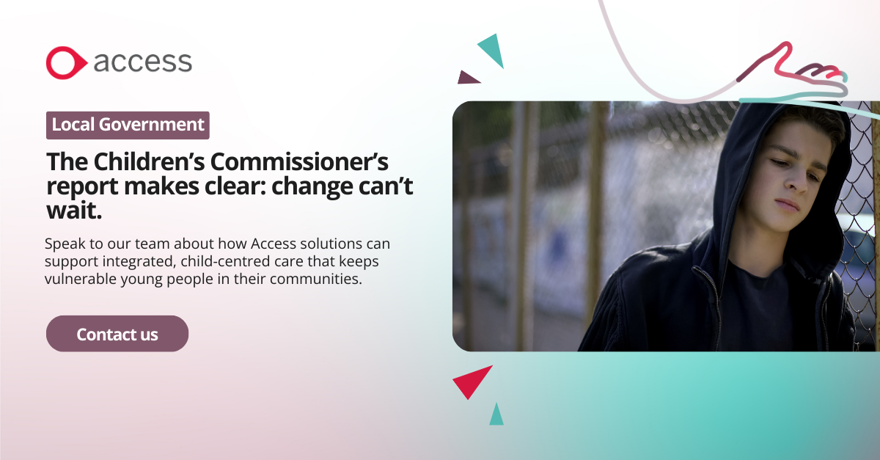
The Reality Behind the Statistics
The numbers tell a sobering story that 62% of children remanded to custody ultimately received no custodial sentence at all. Last year, 441 children who were detained in custody awaiting their hearing did not end up receiving a custodial sentence. Another 168 children had their case dismissed altogether.
These aren't harmless delays. Even a short spell in custody can profoundly damage a child, disrupting education, severing community ties, and sometimes entrenching the very vulnerabilities that brought them into contact with the justice system in the first place. One secure setting staff member aptly described the situation: custodial remand has become "a production line of pointlessness."
The average custodial remand now lasts 125 nights over four months, representing an 89% increase since 2013-14. Perhaps most troublingly, 14% of children on custodial remand in 2021-22 had been there for more than 182 days, exceeding even the upper custody time limit.
Children describe the experience with painful clarity: "I think that's one of the hardest things, you don't know when you're getting out," said one 17-year-old on remand. The uncertainty compounds the trauma.
What This Means for Local Authorities
The report's findings create three urgent imperatives for councils:
Placement Availability is Shrinking When Demand Remains High
-
Placement Availability is Shrinking When Demand Remains High
Foster care placements suitable for remand have collapsed.The number of households in England offering remand placements has dropped by more than half in recent years from 210 in 2019 to just 80 in 2023. If those 210 placements still existed, they would cover almost 29% of the total remand population in 2021-22. Meanwhile, remands to residential or semi-independent accommodation outside children's home regulations have quadrupled since 2013-14, now accounting for one in ten placements. This shift raises serious questions about whether children are receiving appropriate care and support whilst on remand. -
Regional Variation Reveals Systemic Inconsistency
The use of custodial remand varies dramatically between local authorities. Between 2013-14 and 2021-22, one authority used custodial remand for 100% of all remand episodes, whilst another used it for just 38%. Many authorities (38%) used custodial remand for three-quarters or more of their remand episodes. This inconsistency suggests custodial remand isn't always being used as the "last resort" the law requires. Some areas are finding viable alternatives; others aren't or can't. The postcode lottery in children's outcomes is stark. -
Short-Term Remands Continue Despite Being Ineffective
Alarmingly, 11% of custodial remand episodes lasted 14 nights or fewer, with 8% lasting seven nights or less. Professionals told the Children's Commissioner that delays in creating bail packages or sourcing suitable local authority accommodation resulted in these brief custodial periods, essentially using custody as a holding pattern whilst proper arrangements are made.
Short stays in custody are particularly disruptive, offering no rehabilitative benefit whilst severing children from education, family, and community support at a critical moment.
Promising Practice: What Works
The report highlights two innovative pilots, demonstrating what's possible when services collaborate effectively:
Greater Manchester Remand Pilot pooled remand budgets across nine youth justice teams on a regional basis. After 12 months, there was clear evidence of remand to local authority accommodation being considered as a genuine alternative to custodial remand.
London Accommodation Pathfinder developed therapeutic alternative accommodation within the community for children who would otherwise be remanded or sentenced to custody. An evaluation concluded that despite challenges, it remained a promising alternative, noting that "every child residing in the London Accommodation Pathfinder accommodation represents one less child in youth custody."
These pilots demonstrate that regional collaboration, pooled resources, and therapeutic alternatives can work but they require sustained commitment and investment.
How Technology Can Support Better Outcomes
For local authorities grappling with these challenges, integrated technology solutions offer practical support across the remand journey:
Access Adam enables dynamic commissioning for placements, supporting regional collaboration and faster sourcing of suitable accommodation. When time is critical, as it always is with remand decisions, having real-time visibility of available placements across a region can mean the difference between a child entering custody or receiving community-based support.
Access Synergy and Core+ provide integrated case management and data sharing capabilities essential for effective bail planning and safeguarding. When multiple agencies need to coordinate quickly around a child on remand - it is crucial that youth justice services, social care, education, and health teams need a single, shared view of the child's circumstances and needs.
While not all solutions are yet integrated, Access Evo, will be a single platform experience and represents the strategic vision for fully connected children and young people's services. For children on remand who often have overlapping needs across social care, health, education, and youth justice integrated platforms that break down silos will be essential for delivering the wraparound support these vulnerable young people need.
The Path Forward
The Children's Commissioner's recommendations are ambitious, calling for fundamental reform:
- The Department for Education taking responsibility for all core services for children in the youth justice system
- A shift to smaller, homely settings close to where children live
- Regional commissioning of all high needs accommodation,
- and a comprehensive review of sentencing for young people
Local authorities cannot wait for national reform to act. There are immediate steps councils can take now to improve outcomes for children on remand in their areas: invest in expanding specialist remand fostering; establish or join regional collaboration arrangements for pooling resources and sharing placement capacity; strengthen multi-agency coordination through integrated case management systems; and ensure bail planning begins immediately upon arrest rather than waiting for court decisions.
The "production line of pointlessness" that Dame Rachel de Souza describes isn't inevitable. It's the result of systemic choices about funding, about priorities, about how we view children who offend. Local authorities, working with technology partners who understand the complexity of these challenges, have the power to make different choices.
Every child unnecessarily remanded in custody represents a failure of our duty of care. But more importantly, every child diverted from custody to appropriate community support represents a life potentially transformed.

 AU & NZ
AU & NZ
 SG
SG
 MY
MY
 US
US
 IE
IE

